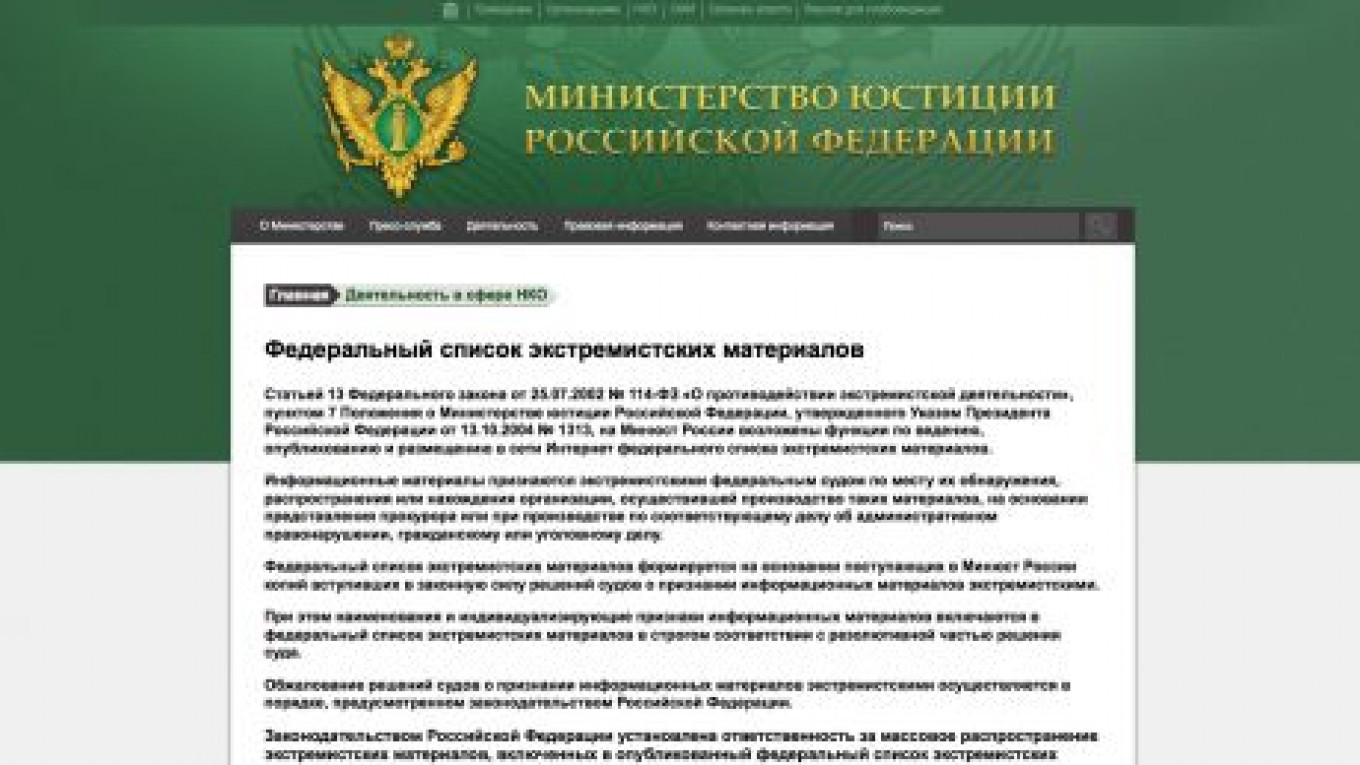A recent Supreme Court decision increases pressure on Internet providers to block websites without direct state interference, lawyers said Friday.
The Supreme Court said in a ruling published earlier this month in Rossiiskaya Gazeta that Web providers risk losing their licenses if they fail to block access to sites with illegal content.
The court made it clear that it is unlawful not only to disseminate information restricted by federal law but also to provide access to such information, law firm Baker & McKenzie said in an explanatory note.
In the underlying case, prosecutors in the Pskov region, in western Russia, demanded that Internet provider Rostelecom block access to online gambling sites. But the Pskov City Court dismissed a lawsuit from the prosecutors, arguing that while online gambling is prohibited, providing access to it is not.
The Supreme Court ruling, which dates from Oct. 9, implies that compliance with content restrictions could be a licensing requirement, the lawyers said.
Although providers used to be able to wait until a site appeared on an official blacklist, the ruling implies that they risk going out of business simply by not blocking illegal content, said Anton Maltsev, of Baker & McKenzie.
"This may be a sign that the rules are changing," he said by telephone Friday. Maltsev added that the court ruling contained very sharp language.
The main legal route for closing sites up till now has been the country's extremism law. Violators have been put on a public blacklist managed by the Justice Ministry. As of Sunday afternoon, the list contained 1,534 entries.
A stricter child protection law that went into force Nov. 1 allows three federal agencies to block, without a court order, sites that propagate child porn, drug use and suicide.
The blacklist, entries to which can be proposed by government agencies and Internet users, has led to the blocking or deletion of content from dozens of sites, including the popular lurkmore.to encyclopedia and even YouTube, which temporarily appeared on the list last week. The list is not public.
Analysts said that the authorities have put pressure on providers before to remove content and that such self-censorship is likely to increase in the future.
"The tendency is there and will grow," said Andrei Soldatov, a security expert who runs the Agentura.ru website. An Internet censorship-monitoring program on his site lists numerous instances of court-ordered blocks and deletions in recent months.
But Soldatov suggested that the number of unreported cases is much higher.
"Often, one phone call from law enforcement agencies is enough for providers to act — and we do not learn about that," he said.
As an example, he said some Internet providers blocked the film "Innocence of Muslims" before it was declared extremist by Russian courts.
Soldatov also pointed out that YouTube remains fully inaccessible in Chechnya even though Communications and Press Minister Nikolai Nikiforov has promised repeatedly that only illegal content would be blocked on hosting platforms and social networks, not the sites themselves.
Related articles:
A Message from The Moscow Times:
Dear readers,
We are facing unprecedented challenges. Russia's Prosecutor General's Office has designated The Moscow Times as an "undesirable" organization, criminalizing our work and putting our staff at risk of prosecution. This follows our earlier unjust labeling as a "foreign agent."
These actions are direct attempts to silence independent journalism in Russia. The authorities claim our work "discredits the decisions of the Russian leadership." We see things differently: we strive to provide accurate, unbiased reporting on Russia.
We, the journalists of The Moscow Times, refuse to be silenced. But to continue our work, we need your help.
Your support, no matter how small, makes a world of difference. If you can, please support us monthly starting from just $2. It's quick to set up, and every contribution makes a significant impact.
By supporting The Moscow Times, you're defending open, independent journalism in the face of repression. Thank you for standing with us.
Remind me later.


